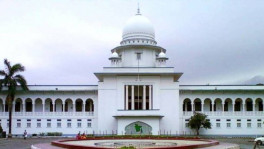Number of mobile financial service accounts surpasses 19cr-mark

The number of accounts with mobile financial services (MFS) such as bKash and Nagad surpassed the 19 crore-mark in the country, according to the latest data of the central bank, thanks to the increasing utility of digital payments and technological advancement.
The account-holders stood at 19.11 crore in number, to be exact, at the end of December last year, up by 2.14 crore year-on-year. The increased number of users has also been contributing to a gradual surge in MFS transactions. The amounts of transactions crossed the Tk96,000 crore mark in December after an upward trend in the previous three months.
The growth in user base, however, does not necessarily reflect the increase of individual people using MFS, sector insiders said, as a person can open multiple accounts with different service providers. The Bangladesh Bank does not reveal the number of people using mobile financial services.
Insiders believe that the number of people using MFS is still low and there are scopes to work further to include more people in the MFS network.
"People are gradually becoming used to digital transactions. We are also trying to continuously include a variety of facilities. Currently, dozens of facilities including merchant payment and bank deposit are available through MFS," said Shamsuddin Haider Dalim, head of corporate communications of bKash.
"We have observed that once a customer transacts through bKash, he or she continues to transact," he added and noted that the government engagement such as the disbursement of various allowances through MFS has helped increase customers and transactions.
bKash has 6.5 crore subscribers, Shamsuddin Haider said.
Muhammad Zahidul Islam, head of communication of Nagad, said they are using state-of-the-art technologies to bring people under the network of MFS. "Financial inclusion and reducing the costs for services were Nagad's initial priorities. Nagad is a success here. Now we are expanding our services."
Every month the company is introducing new services which make its customers' lives easier, he said and added that it is Nagad that got 7.20 crore users (as of January) in less than four years of its establishment.
Nagad sees some Tk1,000 crore transactions every day, while the total MFS transactions is approximately Tk3,000 crore per day, added Zahidul Islam. "We expect that total amounts of mobile-based transactions will increase ten to twenty times within five years."
Currently, the mobile financial service provider is heading to establish a digital bank. "We hope that Bangladesh will see a cashless society soon, where Nagad will play a vital role," he added.
According to the latest Bangladesh Bank data, the number of MFS account holders was 10.60 cores in the rural areas as of December last, significantly higher than the 8.50 crore in urban areas. The year-on-year growth in account-holders in rural areas was 9.13% and in urban areas 17.19%.
Apart from this, institutional accounts have increased by over 1 lakh to 4.5 lakh over the past year.
The central bank data says year-on-year MFS transactions increased by over Tk15,000 crore to Tk96,133 crores in the month of December.
The financial services are also becoming popular for paying utility bills, as reflected in the December data. In that month, more than utility bills worth Tk1,950 crores were paid using these digital services.
At the end of December, MFS providers saw some Tk9,000 crore in remaining balances.
With the Bangladesh Bank's approval in 2010, mobile financial services started the journey in the country in early 2011 with the launch of Dutch-Bangla Bank's mobile banking services. Later, Brac Bank launched bKash as a subsidiary, which now dominates the market, followed by Nagad.
Currently, 13 banks offer mobile banking services in the country under various names such as bKash, Rocket, UKash, MyCash and SureCash. They provide services like sending money, cash-in, cash-out, salary disbursement, donation for the poor, stipend disbursement, remittance, payments for different government services, toll payment, credit card bill payment, insurance premiums, etc.


 Keep updated, follow The Business Standard's Google news channel
Keep updated, follow The Business Standard's Google news channel















